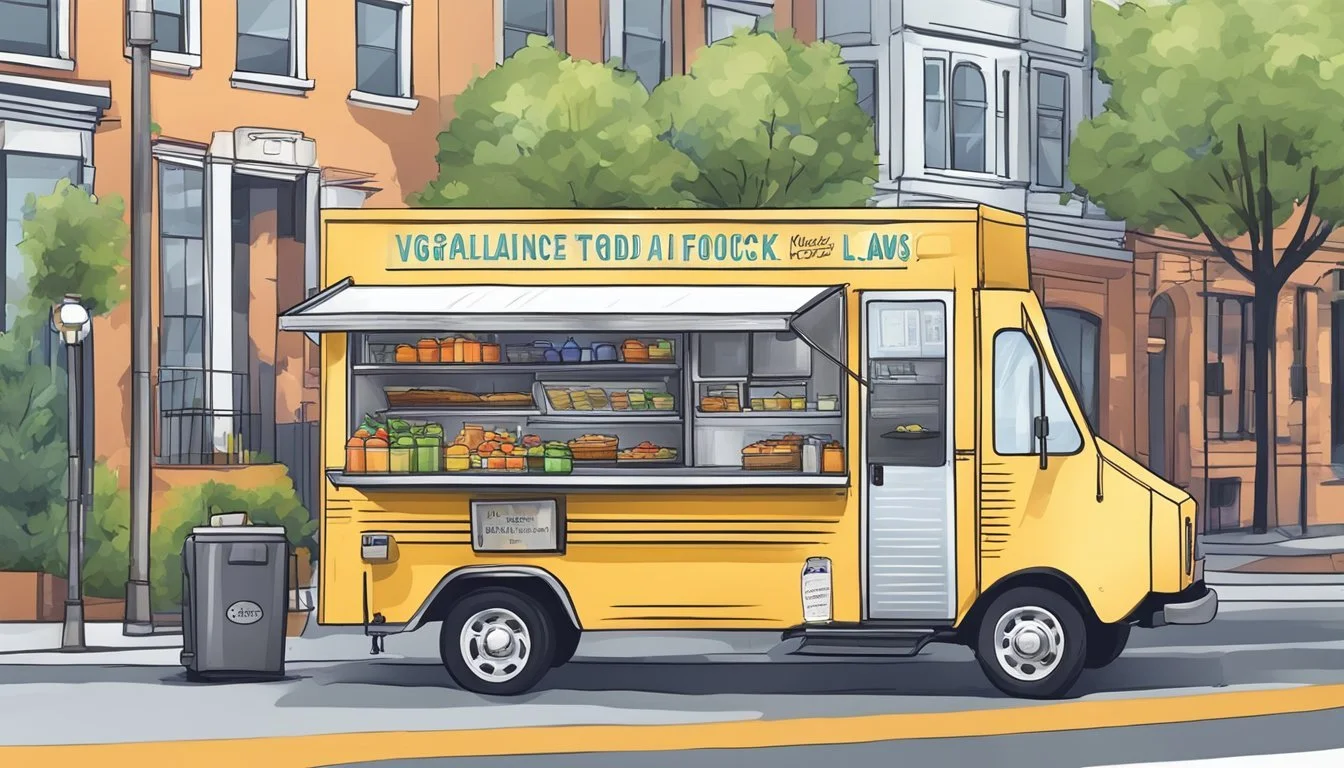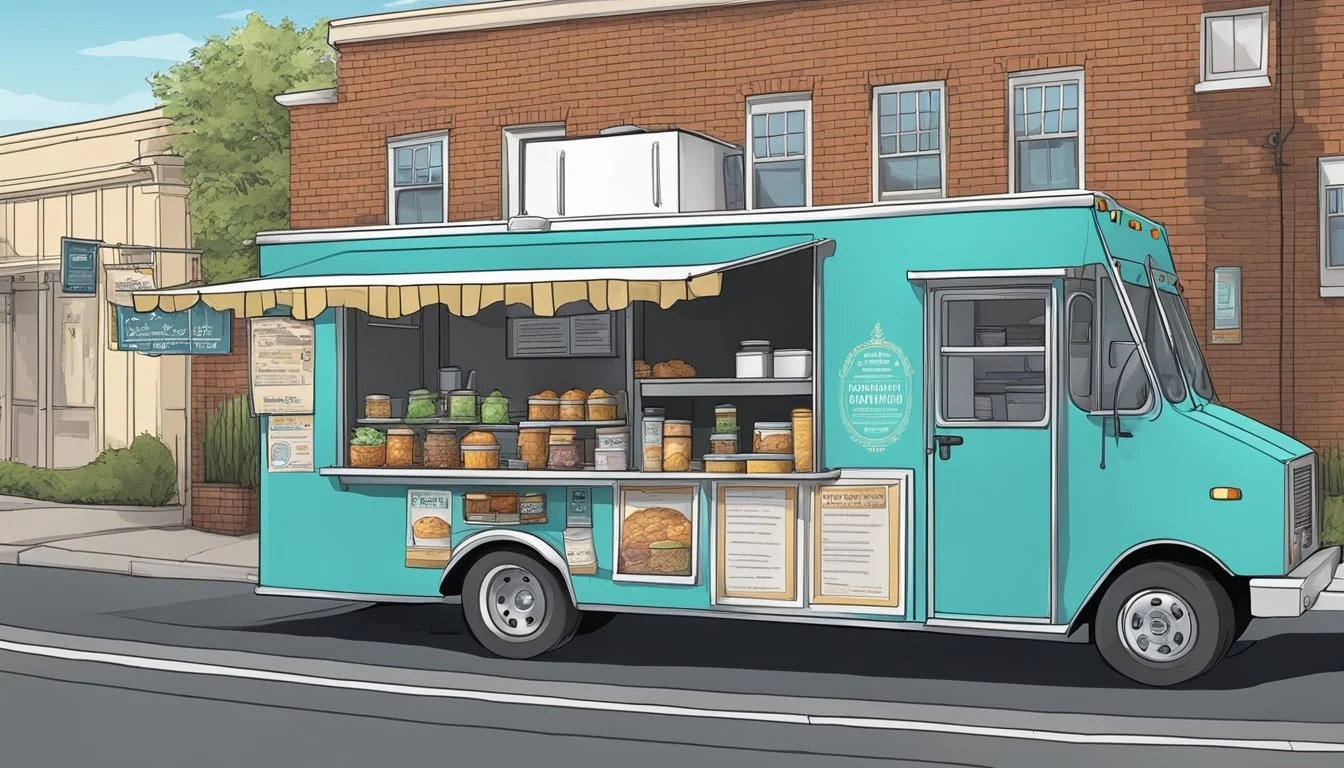Food Truck Laws in Virginia
Navigating Regulations for Mobile Vendors
Starting a food truck business in Virginia requires navigating a series of regulations and obtaining the appropriate permits. Entrepreneurs must ensure they are in compliance with both state and local laws, which govern the operation of mobile food units. The process of securing the necessary licenses and permits is a critical step in establishing a food truck business. This involves developing a comprehensive business plan, acquiring funding, choosing a suitable vehicle, and preparing it for food service.
Virginia's Department of Health provides guidance on the operation of food trucks, specifically addressing the safety and handling of food served to the public. Mobile units are subject to inspections and must adhere to the same food safety regulations as restaurants. The state offers resources, such as the Mobile Food Unit Operation Guide, to help operators understand and comply with these rules. Additionally, local municipal governments have their own specific requirements regarding business licenses, taxes, and permissible locations for food trucks.
Understanding the legalities of running a food truck in Virginia is also vital to avoid penalties and ensure smooth operations. Location restrictions, particularly in residential areas, and tax obligations are crucial considerations. Each aspiring food truck owner must take into account these legal aspects to ensure their business is set up for success within the Commonwealth of Virginia.
Understanding Virginia's Food Truck Laws
Navigating the legal requirements for operating a food truck in Virginia is crucial for vendors to comply with state laws and safeguard public health. This section provides detailed insight into the specific regulations that food truck operators must adhere to in the Commonwealth.
Statewide Regulations and Exemptions
In Virginia, food trucks and other mobile food vending units are broadly regulated to ensure food safety and public health. Operators must adhere to the Commonwealth of Virginia Board of Health Food Regulations to avoid penalties. However, certain exemptions exist for specific food types and vending scenarios. To confirm if a food truck falls under these exemptions, vendors should consult official state guidelines or a food safety expert.
Permitting Process
Acquiring the necessary permits is a fundamental step for food truck operators in Virginia. The permitting process involves several stages, beginning with an application to the Virginia Department of Health. Prospective vendors must submit details about their business, including the type of food sold and the locations where they intend to operate. Upon application, a thorough inspection of the food truck is conducted to ensure compliance with state requirements.
Health and Safety Requirements
Health and safety requirements are strictly enforced to protect consumers. Food trucks must comply with food safety regulations, including maintaining clean facilities and proper food storage. They face routine inspections to check for adherence to sanitation standards. Operators should also be aware of the Commonwealth of Virginia’s food safety regulations that dictate temperature controls and cross-contamination prevention practices.
Certification and Training Obligations
Virginia mandates that food truck operators have a certified food protection manager (CFPM) as part of their staff. This certification confirms that someone on the team has undergone the necessary training to recognize and mitigate food safety risks. Completion of an accredited food safety course is required to meet the CFPM requirement, ensuring that food truck staff can maintain high standards of food hygiene and safety.
Local Ordinances and County-Specific Laws
In Virginia, food truck operators must pay close attention to county-specific laws and local ordinances, which can significantly impact their day-to-day operations. From working with local health departments to understanding zoning regulations, compliance is essential.
Navigating County Regulations
Each county in Virginia has unique requirements for food trucks, known as mobile food units. Operators in Arlington County, for instance, must adhere to specific business license and tax requirements that may differ from those in other counties. They are mandated to obtain proper permits and are subject to local business laws.
Working with Local Health Departments
Local health departments enforce food safety regulations. The Virginia Department of Health requires food trucks to complete a plan review process, after which an annual permit is issued. Operators should establish good relationships with local health departments to navigate these requirements successfully.
Zoning and Use of Public vs. Private Property
Zoning laws dictate where food trucks can operate. Public property often has restrictions, and private property use is usually subject to separate agreements with property owners. Food trucks must ensure they are compliant with local zoning ordinances, which can vary between jurisdictions within Virginia.
Operational Guidelines for Food Trucks
Operating a food truck in Virginia involves strict adherence to defined standards, which assures both compliance with regulations and the safety of customers. Food establishments on wheels, like mobile food units, must navigate a matrix of food safety protocols and prepare for regular inspections, particularly when partaking in events such as festivals and fairs.
Mobile Food Unit Standards
Virginia has specific regulations that address the operational aspects of mobile food units. Operators are required to undergo a plan review process and obtain a permit. The review considers details such as the proposed menu and unit layout. For example, there must be suitable facilities for food storage to ensure temperature control. It is crucial that operators follow these guidelines to maintain the integrity of their establishment and uphold food safety.
Plan Review:
Cost: $40.00
Includes: Proposed menu, unit layout, equipment details
Unit Permit:
Required for operation
Based on successful plan review completion
Food Handling and Safety Protocols
Food security is paramount. Virginia food safety experts prescribe how food should be handled to prevent contamination and illness. This includes enforcing handwashing procedures, wearing gloves when handling ready-to-eat foods, and regular monitoring of food temperatures.
Safe Food Handling:
Hand hygiene
Glove usage
Cooking to right temperatures
Food Storage:
Refrigeration
Separation of raw and cooked items
Inspection Readiness
Inspections are a routine part of operating a food truck. Deemed necessary to ensure that mobile food units comply with the food regulations, they can occur unannounced. As such, food truck operators must always be prepared, with documents readily available and all areas accessible to inspectors. Maintaining cleanliness and organization are key factors in passing an inspection.
Inspection Checklist:
Valid permits and licenses displayed
Clean and accessible food prep areas
Proper waste disposal systems
Event Participation Requirements
Food trucks wishing to participate in festivals, fairs, or as a temporary food establishment at events are subject to additional requirements. They should coordinate with event organizers to understand the specific regulations, which may include location restrictions, additional permits, and compliance with local health department standards.
Event-Specific Standards:
Location permissions
Extra health department standards
Additional event-specific permits
Resources for Food Truck Operators
For food truck operators in Virginia, understanding and complying with the state’s regulations is crucial for running a successful business. These resources offer guidance on health and safety standards, permit applications, and business development strategies specific to the food truck industry.
Virginia Department of Health Resources
The Virginia Department of Health provides comprehensive guidelines for mobile food units including food trucks. Operators can find information on permitting mobile units, which details the VDH permit requirements and standards for food safety to ensure compliance with health regulations. It is imperative for food truck operators to maintain regular communication with their local health departments to stay updated on any changes in the food code or additional requirements that may arise.
Virginia Department of Agriculture and Consumer Services
Another essential resource is the Virginia Department of Agriculture and Consumer Services (VDACS), which outlines agricultural and safety regulations for food trucks that may offer locally sourced products. They ensure that food truck operators are selling goods that meet the state's quality and labeling standards. VDACS also works in conjunction with the health department to safeguard public health concerning food sales and distribution.
Business Development and Support
Food truck operators can leverage various business development and support resources available in Virginia. These include creating a solid business plan, understanding zoning laws, and securing the proper licenses and permits. Operators should explore local resources, such as small business development centers, which can offer assistance in these areas. Collaboration with these entities can streamline the start-up process, from applying for all licenses and permits required in Virginia to finding the right location for operation.
By utilizing these resources, food truck operators can establish their businesses on a solid foundation of compliance and best practices, leading to a thriving enterprise within the food service industry in Virginia.




